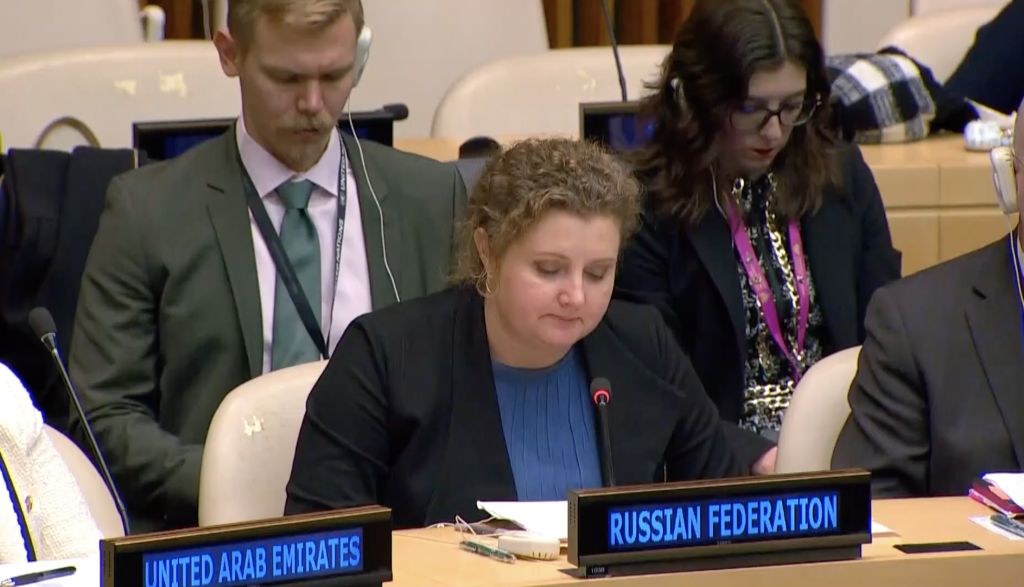Statement by Deputy Permanent Representative Anna Evstigneeva at an "Arria-formula" meeting of UNSC members marking the 7th anniversary of the Youth, Peace and Security Agenda
Mr.President,
We listened carefully to representative of the Sudanese youth, Ms.Nynar Kul, as well as Executive Director of UNFPA, Ms.Natalia Kanem.
We subscribe to what have been said about the need to prioritize the youth agenda in the UN and address urgent issues of socialization of the young people. We recognize the importance of a conscious and constructive participation of the youth in efforts to maintain peace and security in armed conflicts and post-conflict situations. Those goals are reflected in UNSC resolutions 2250 and 2419, to which this meeting makes frequent references.
However involvement of the youth in any activities of such sensitive nature must be based on their professional knowledge and skills in the first place. Besides, we believe we need to guard the young people from any political activity until they achieve legal age.
We understand and share the importance of including the issues of youth in discussing some country-specific situations on the UNSC agenda, especially taking into account the specifics of African states, where young people constitute a considerable share of the population. However, when discussed outside this context, these issues but distract the Security Council from addressing the urgent problems that UNSC is called to solve.
In practical terms, we think it is necessary that states in conflict pay proper attention to eradicating poverty, illiteracy, and unemployment, as those are the major impediments that do not let the youth unleash their potential. Against the backdrop of difficult living conditions, some countries develop favorable environment for the spread of extremist ideas and radicalization.
It is also essential that we view the youth agenda in the context of UNSC tasks and its mandate, and focus on countering extremism and terrorism. By all means, these phenomena can affect people of all ages, but young people, with their worldview still under formation, appear to be more susceptible to radical ideology. Given their overall lack of life experience, education or any prospects for self-realization in countries with an unfavorable socio-economic situation or in conflict situations, young people often come in sight of extremist groups that seek to involve them in illegal activities. In an attempt to win over the young people, extremists would more often turn to information and communication technologies, which makes it necessary for us to increase collective efforts in the area of international information security.
Cases when radically-minded young people become used for achievement of internal political goals deserve our specific attention. In particular, I mean processes that are orchestrated from the outside and aimed at destabilization – under a cover-up of democratic and human rights slogans. The proclaimed support for young leaders should not evolve into situations when external stakeholders may be forming anti-governmental movements in the states that they find undesirable. Those were the elements that we believe must underpin the implementation of the youth, peace, and security agenda.
Regional organizations that have the required country-specific expertise play an important role in countering the radicalization of the youth. We note the meaningful engagement of regional mechanisms at this track, for example CSTO and SCO.
In conclusion, an in-depth discussion of youth-related aspects at specialized UN platforms that are designed to address questions of education, employment, sustainable development, and other crucial topics appears to be particularly valuable.
Thank you.
